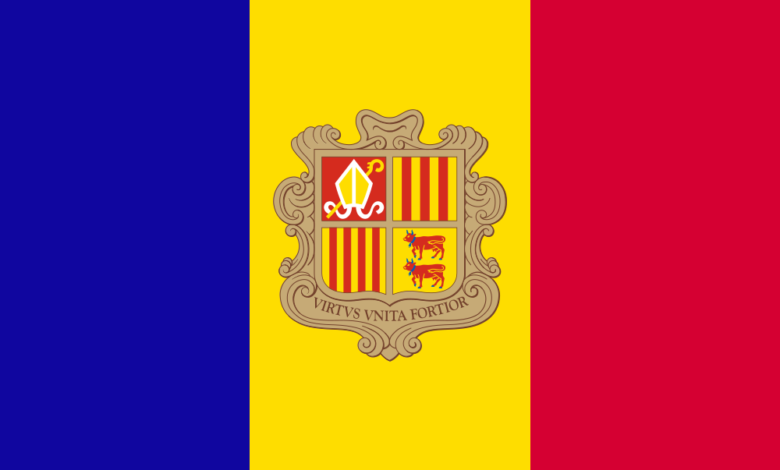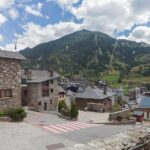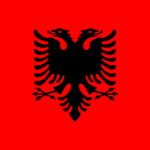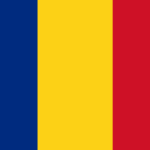Andorra

The tiny principality of Andorra is located in the high mountains of the Pyrenees between France and Spain. With its 464 km², Andorra remains one of the smallest states in the world; by comparison, France has an area of 543,965 km², and Spain has 504,748 km². Compared to its two big neighbours, Andorra seems almost a Lilliputian state. Andorra was admitted to the United Nations in 1993 and has also been a member of the Council of Europe since 1994. The principality is located between the cities of Toulouse (France) and Barcelona (Spain).
From an administrative point of view, Andorra is divided into seven municipalities often still called “parishes”: Andorra la Vella, Canillo, Encamp, Escaldes-Engordany, La Massana, Ordino and Sant Julià de Lòria. Some parishes are themselves divided into “quarters”, others into “veïnats” (or “neighbourhoods”).
Politically, from 1368 to 1993, Andorra was placed under the sovereignty of two provinces. Traditionally, it is the head of the French state and the bishop of the Spanish diocese of Seo de Urgel (in Catalonia). Until 1993, the latter could, at least in principle, exercise certain veto rights, in particular on external affairs. In 1993, adopting a new Constitution, Andorra became an autonomous state of its provinces.
Since then, the two co-princes continued to assume “jointly and undividedly” the highest political representation of the principality, but they now exercise their functions “in a personal and exclusive capacity” (art. 43 of the Constitution). France and Spain still ensure the defence of the country, because the Andorran State does not maintain an army.
In other words, it is neither France nor Spain which exercises the highest political representation of the State, but the co-princes, and this, on a strictly individual basis, the principality remaining politically sovereign.
| The principality of Andorra, called “El País dels Pirineus” or “the country of the Pyrenees”, has only one Chamber of Assembly: the General Council of the Valleys (or Consell General de las Valls ) with 28 seats, with members elected by direct popular vote, including 14 in a single national constituency and 14 to represent each of the seven “parishes”. Furthermore, the Principality of Andorra has particular political characteristics. Indeed, it is neither a member of the European Economic Area nor a candidate for the European Union and has not signed a customs cooperation agreement with the Union. However, in 1990 it signed a partial customs union agreement with the European Community; The currency is the Euro. |
Finally, in 2004, Andorra became an “associate member” of the International Organization of La Francophonie (OIF) at the Summit of Heads of State and Government speaking French, which took place in Ouagadougou (Burkina Faso) on November 26 and 27. Then, the principality was also admitted to the Cumbre de Estados Iberoamericanos (“Summit of Latin American States”) as well as the Latin Union; Catalan, the Principality’s official language, has thus become the sixth language of the Latin Union after Spanish, French, Italian, Portuguese and Romanian (but only Spanish, French, Italian and Portuguese are the working languages). The Principality of Andorra has also become the 22nd member of the Ibero-American
Table of data
Motto: Virtus Unita Fortior (Latin)
"United virtue is stronger"| Independence | • from Aragon 8 September 1278 • from the French Empire 1814 • Constitution 2 February 1993 |
Map View
National Anthem
Anthem: El Gran Carlemany (Catalan)
“The Great Charlemagne”
Further Reading:
- Wikipedia – https://en.wikipedia.org/wiki/Andorra
- bbc.com – https://www.bbc.com/news/world-europe-17028050


